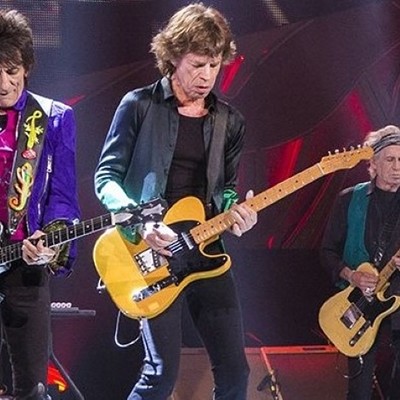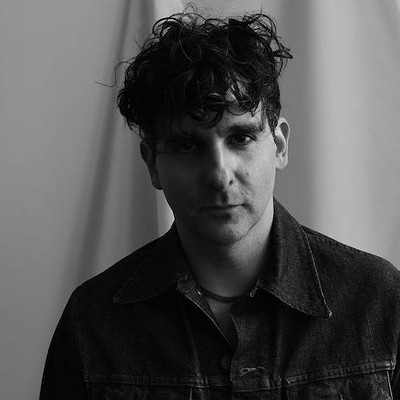Milton Martin spends his days blowing his soprano sax from his wheelchair in the bright sun at the corner of Main and McKinney, hard by the assemblage of broken dreams and frustrated town planning that is Main Street Square. Over an everyday assemblage of abject, bullyragging winos, hard-looking dudes with neck tats, and occasional cubicle slaves, Martin's sweet-toned soprano sax can be heard rising with its mockingbird-like, myriad variations on tunes like Bill Withers's "Ain't No Sunshine."
Tell Martin he's better than the average Houston street musician - and in actual fact, he's New York recording studio session quality -- and he'll not-so-humbly acknowledge that fact. He'll fix you with the hazel eyes that pierce you with their gaze from under his floppy black cap and say, "That's 'cause I'm not from here. That's why - I am from New Orleans.
"I'm actually tryin' to train some of these guys," he grouses. "Some of 'em can't even play 'Happy Birthday.'"
As far as music goes, our ancient sister to the east has always been Greece to our Rome. Almost a hundred years ago, during a brief stay in Houston, Jelly Roll Morton copped a similar attitude. On being run out of town for various nefarious activities centered on the part-time pimp's Fourth Ward "tailor's shop," here is what the self-described inventor of jazz had to say about Houston's music scene circa 1917: "I was tired of Houston anyway. There wasn't any decent music around there, only Jew's harps, harmonicas, mandolins, guitars and fellows singing the spasmodic blues -- sing a while and pick a while till they thought of another word to say."
Martin, a Katrina evacuee from New Orleans's Mid-City neighborhood, is bringing that same New Orleans swagger to the spasmodic blues of the downtown Houston street musicians' scene, and as anyone who has been to an Astros game in recent years can tell you, it is much-needed. "To us music is universal love, so we try to better ourselves musician-wise," he says. "It's a shame we can't make more money in the clubs, so we do it on the street. That's what we have to do now."
He would play in a band, he says, but none of them meet his standards. "They don't wanna show up for rehearsal," he says. "If you don't wanna show up for rehearsal, I won't show up either. I'm real serious about what I do."
Martin says the street musicians' scene is more organized than the average passerby might think. He says they help each other with supplies - reeds, mouthpieces, strings, sheet music for those who can read, even better tip-boxes. They also parcel out their turf in an organized manner: "We've all got our territory, but we take care of each other. If we take off, we'll let another musician know and they'll take our spot. It's organized. We all have cell phones."
They all welcome the return of baseball to Minute Maid Park, he says. "That's mandatory," he says, and adds that it's a little different than playing for the lunchtime crowd. "Basically, you have to entertain the children, with children's songs, TV themes, or songs that fit the occasion like 'Take Me Out to the Ballgame.' For some reason they love 'Sanford and Son.' I don't know why but they do. I do know how to play what they like, but sometimes I improvise."
Years ago, Martin, who suffers from a form of brittle-bone disease, was one of the first people to march in one of New Orleans's vaunted high school bands while in a wheelchair. "If I walk from here to the next block, I might break a leg," he says. "I've had 38 broken bones and 16 surgeries to correct some of 'em."
Martin counts himself lucky his condition isn't worse than it is. "I do walk some inside of my house, but as I get older it hurts more," he says. "I may break a hip, and we all don't need that. Nobody needs that. So as I get older I use my chair as much as I can I have number one, and it goes to number four. With number four, you can sneeze and break a rib."
Back in New Orleans, the papers used to write about Martin. Writers loved spilling ink on the wheelchair-bound man who used to hunt and fish despite his handicap. "I had my rifle here and my rod and reel here on the side," he remembers with a chuckle, and adds that he also likes to paint.
But music is still his driving force. The one thing he resents is the why some parts of society see him. "Some people see us as panhandlers," he says. "This is not a tin cup, this is a $1200 horn. We try to practice and get better at what we do."






